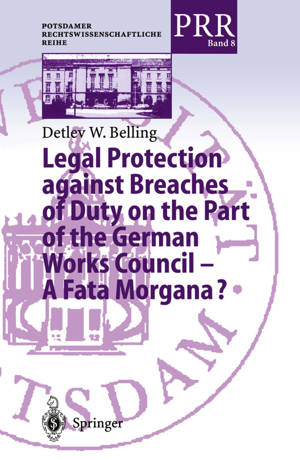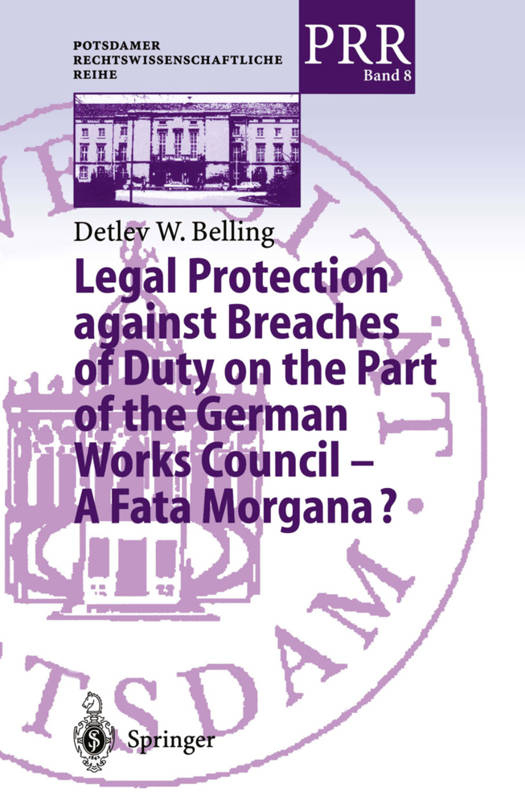
- Retrait gratuit dans votre magasin Club
- 7.000.000 titres dans notre catalogue
- Payer en toute sécurité
- Toujours un magasin près de chez vous
- Retrait gratuit dans votre magasin Club
- 7.000.0000 titres dans notre catalogue
- Payer en toute sécurité
- Toujours un magasin près de chez vous
Legal Protection Against Breaches of Duty on the Part of the German Works Council -- A Fata Morgana?
Detlev W Belling
105,45 €
+ 210 points
Format
Description
In the working world, the weal and woe of the largely defenseless individual is vested in the hands of the collective powers. The trust placed in these powers stands in stark contrast to the widespread distrust of the democratic constitutional state. While legal protection vis-a-vis the state has been extended in a very so- phisticated and flexible manner, often to an extreme degree, the question of how the employee and the employer can be protected against breaches of duty on the part of the works council (Betriebsrat) under the German industrial govemance laws has yet to be resolved. This is a highly relevant issue of great social and po- litical explosiveness. The question is how much latitude the collective powers should have to act according to their own discretion without being compelled to answer not only to the employees, but also to the employers as weIL In light ofthe legal protection that has been developed for the past hundred years and more, and particularly the continued expansion of the individual's legal protection vis-a-vis the state powers since the Basic Law (Grundgesetz) entered into force, the control held by the intennediary powers, and thus also the works council, appears almost anachronistic. In the past ten years this deficiency in the legal protection provided under the industrial govemance laws has increasingly forced its way into the line ofvision ofthe Gennan labor law scholars.
Spécifications
Parties prenantes
- Auteur(s) :
- Editeur:
Contenu
- Nombre de pages :
- 97
- Langue:
- Anglais
- Collection :
- Tome:
- n° 8
Caractéristiques
- EAN:
- 9783540668350
- Date de parution :
- 20-01-00
- Format:
- Livre relié
- Format numérique:
- Genaaid
- Dimensions :
- 156 mm x 234 mm
- Poids :
- 335 g

Les avis
Nous publions uniquement les avis qui respectent les conditions requises. Consultez nos conditions pour les avis.






